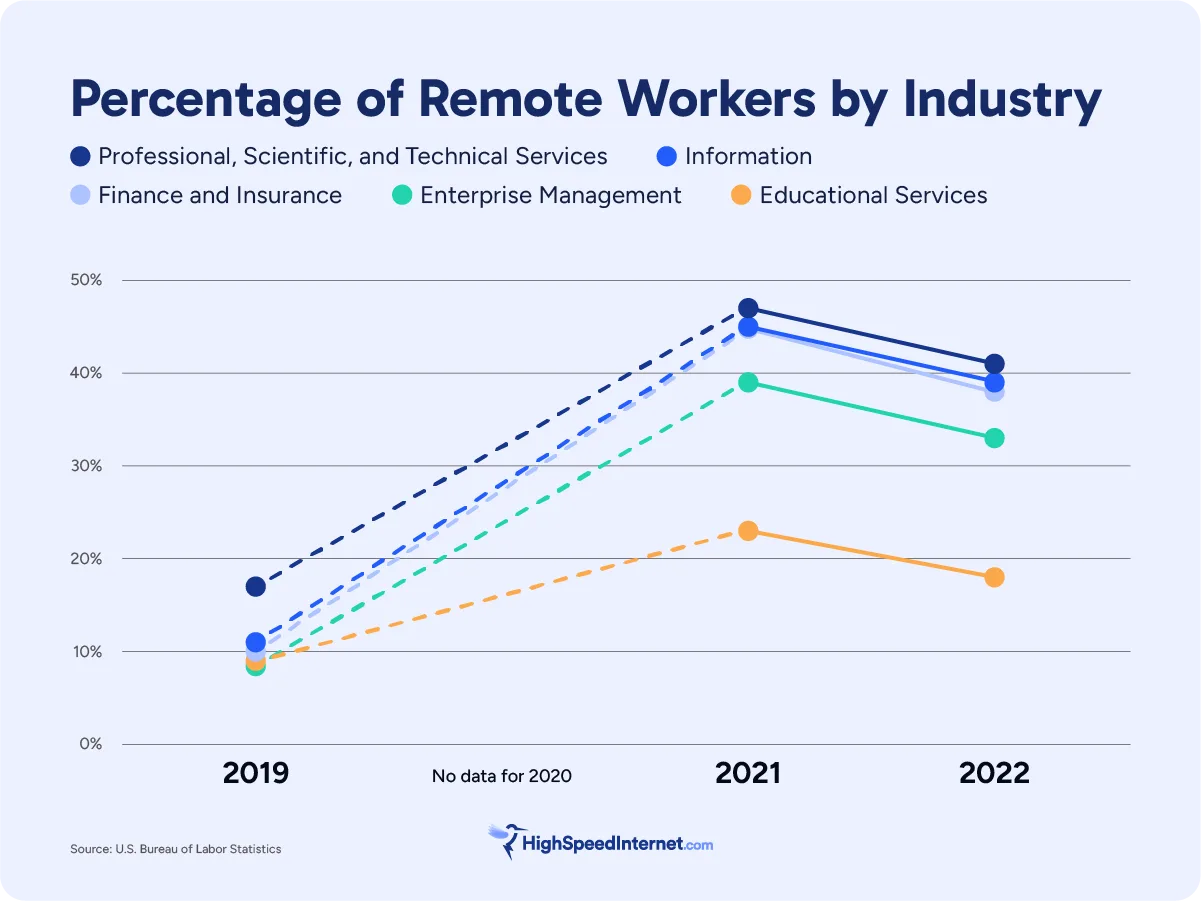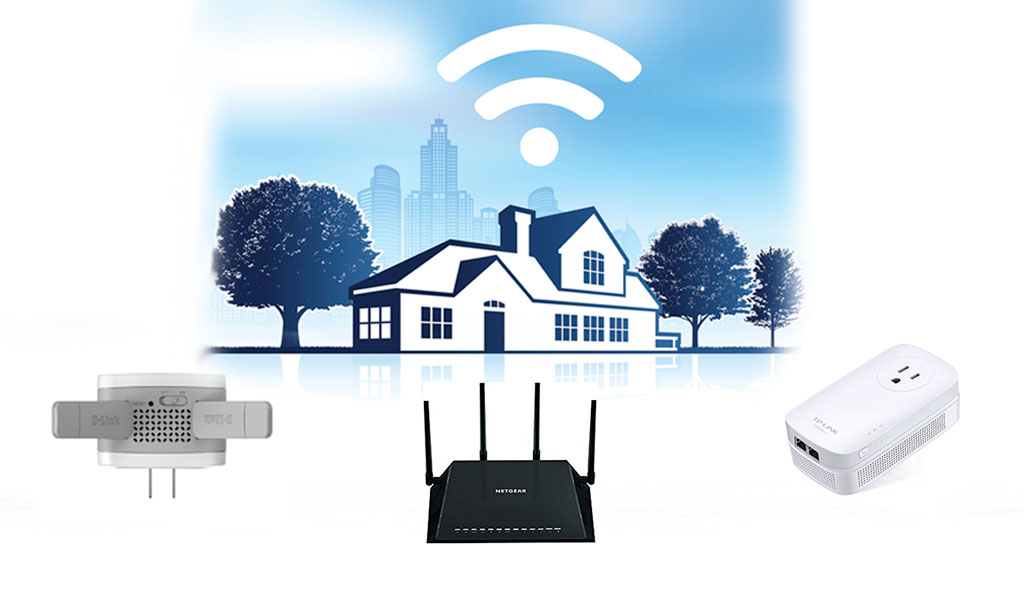Making Money by Working Remote
Return-to-office be damned!
May 22, 2025 | Share
How-To
It probably won’t shock anyone to discover that the best way to find a job that allows you to make a living from home is to apply to full-time jobs at established companies, just filtering for online positions. These jobs are much harder to find compared to previous years as the push for return-to-office continues, but plenty are still out there.
Of course, if you’re starting out or trying to switch careers, there are some pretty big barriers to entry. Jobs at companies that support remote work are very competitive, and other companies have little incentive to make an exception when the labor market is flooded with applicants. An online office job also requires the same experience as an in-person job, so you can’t decide on a whim to try your luck as an accountant or a data engineer.
Jobs that offer remote work
Remote jobs weren’t uncommon before the COVID-19 pandemic, but their prevalence exploded after companies scrambled to adapt to working during lockdowns. Even after COVID restrictions ended and remote workers began returning to the office, the number of remote jobs is still much higher than it was before. As an October 2024 report from the U.S. Bureau of Labor Statistics notes, the industries that increased their percentage of remote workers saw increases in productivity, even on top of existing trends.

Jobs in tech and finance are among the most likely to offer remote positions. And you’ll find even more remote jobs in certain segments of the tech sector, such as data processing, computer systems design, and internet publishing.
Of course, not everyone has the education or experience to just jump into these fields. But if you’re still in school or considering a pivot in your career, these are some options you might want to consider.
Finding remote jobs with no experience
There are some fields where you’re more likely to find entry-level online jobs or other positions that don’t require experience. Jobs in customer service, tech support, sales, and other industries that interact with their customers over the phone or through chat are always in need of people to handle incoming calls.
All these fields make extensive use of automated telephone systems, AI chatbots, and other forms of automation, but they still need people on the other end to handle the specifics. These jobs often operate out of large call centers, but plenty allow you to work from home. In some cases, you don’t even have to be on the phone all day as long as you remain “on call” to help customers when needed.
Although experience might set you apart from the other applicants, most of these jobs don’t necessarily require experience or a specific degree. That said, the amount of competition you face from people with degrees and experience varies by industry. For example, IT help desk jobs may not require an IT degree, but new IT graduates looking to land six-figure jobs in a field like cybersecurity or network administration often start at the help desk and work their way up.
It’s a good idea to do some basic research about a field before applying for jobs. That doesn’t mean you can’t apply to an entry level IT position without a degree, but it’s good to have realistic expectations so you can focus your effort on jobs best suited to your skills.
Where to find remote jobs
Your best chance for finding a standard remote job is on the usual job boards like LinkedIn, Indeed, and Monster. These platforms give you plenty of tools to filter jobs and find only remote positions. Of course, there are upsides and downsides to looking on the biggest platforms. That’s where you’ll find the most jobs, but that’s where everyone else is looking, too. Just don’t be surprised when you apply for hundreds of jobs and only get a handful of replies.
There are also some platforms like FlexJobs and WeWorkRemotely.com that specialize in remote work. These might be helpful to narrow your focus since the jobs they post are all remote. In general, however, the big sites will probably give you better results.
Consider visiting the websites of companies you’d like to work for and navigating to their careers page. This option is a great way to get a job you enjoy or feel passionate about. Remember that these companies also post on sites like LinkedIn, so you’ll still be one applicant among thousands. You don’t want to spend this much time and effort on every application you submit, but it’s probably worth checking on a handful of your top choices.
The best approach to getting a remote job depends on your field and background, but it’s a good idea to cast as wide a net as you can. This is especially true if you’re looking for entry-level positions or jobs that don’t require experience since it’s much harder to stand out with just your resume.
Best internet for remote work
We’ve covered internet for remote work quite a bit on HSI, but in general, you need a reliable connection for all those zoom meetings and a decent speed for uploading and downloading files. If you’re going to be working while kids or roommates are watching Netflix in the basement, you might want to go for a slightly faster connection so that you don’t have to worry about fluctuations in bandwidth.
In general, a good cable connection is probably plenty to work from home, but a fiber connection would be best, especially if you regularly upload large files for work.
Do you need a high-speed internet connection that’s fast enough to work from home?
Enter your zip code to see what plans are available at your location.
The bottom line: Remote jobs are your safest bet
Being a full-time remote employee is the best way for most people to make money online. As a normal employee, you get all the advantages of having a job—the company takes care of payroll taxes, you get health insurance and benefits, and there are promotions and raises. The American Dream.
The downsides are that, even though you don’t have to go in to the office, a full-time job isn’t always the most flexible. You might still have set hours and limited time off. And if your company isn’t remote-first, you might not get as much contact with the rest of your team as the people who work in the office.
Still, there’s a reason that remote work stuck around after the pandemic and many workers are prioritizing it over other perks when looking for a job. Remote work is definitely here to stay.
Author - Peter Christiansen
Peter Christiansen writes about telecom policy, communications infrastructure, satellite internet, and rural connectivity for HighSpeedInternet.com. Peter holds a PhD in communication from the University of Utah and has been working in tech for over 15 years as a computer programmer, game developer, filmmaker, and writer. His writing has been praised by outlets like Wired, Digital Humanities Now, and the New Statesman.
Editor - Jessica Brooksby
Jessica loves bringing her passion for the written word and her love of tech into one space at HighSpeedInternet.com. She works with the team’s writers to revise strong, user-focused content so every reader can find the tech that works for them. Jessica has a bachelor’s degree in English from Utah Valley University and seven years of creative and editorial experience. Outside of work, she spends her time gaming, reading, painting, and buying an excessive amount of Legend of Zelda merchandise.




